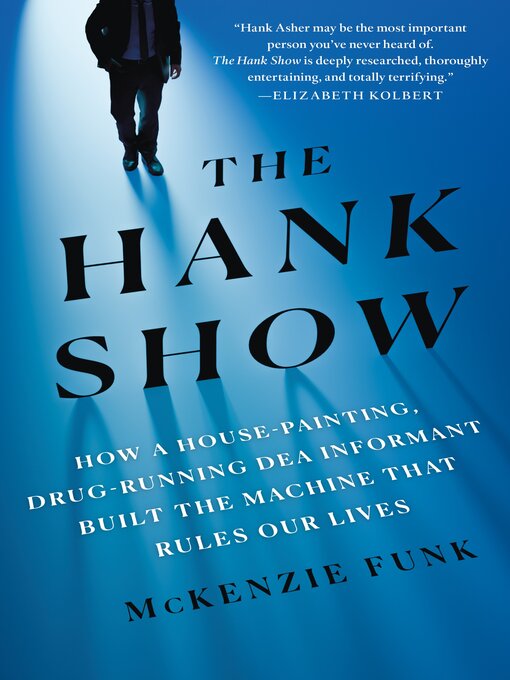The bizarre and captivating story of the most important person you've never heard of.
The world we live in today, where everything is tracked by corporations and governments, originates with one manic, elusive, utterly unique man—as prone to bullying as he was to fits of surpassing generosity and surprising genius. His name was Hank Asher, and his life was a strange and spectacular show that changed the course of the future.
In The Hank Show, critically acclaimed author and journalist McKenzie Funk relates Asher's stranger-than-fiction story—he careened from drug-running pilot to alleged CIA asset, only to be reborn as the pioneering computer programmer known as the father of data fusion. He was the multimillionaire whose creations now power a new reality where your every move is tracked by police departments, intelligence agencies, political parties, and financial firms alike. But his success was not without setbacks. He truly lived nine lives, on top of the world one minute, only to be forced out of the companies he founded and blamed for data breaches resulting in major lawsuits and market chaos.
In the vein of the blockbuster movie Catch Me if You Can, this spellbinding work of narrative nonfiction propels you forward on a forty year journey of intrigue and innovation, from Colombia to the White House and from Silicon Valley to the 2016 Trump campaign, focusing a lens on the dark side of American business and its impact on the everyday fabric of our modern lives.
- Available now
- New eBook additions
- New kids additions
- New teen additions
- Most popular
- Try something different
- Local History
- Project Gutenberg
- See all ebooks collections
- New audiobook additions
- Available now
- New kids additions
- New teen additions
- Most popular
- Try something different
- See all audiobooks collections
- Latest Magazine Issues
- Celebrity
- Canadian Magazines
- Food and Cooking
- Sports
- Children's Magazines
- Health & Fitness
- Chinese Magazines
- See all magazines collections



